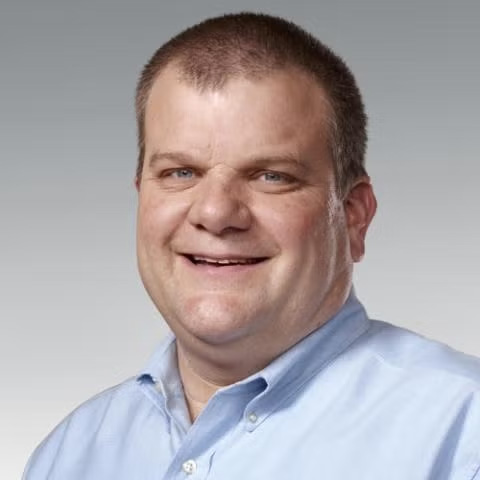
Bob Mansfield, Cockrell School of Engineering alumnus
A message to engineering students graduating across the country this month: If you’re in the market for a mentor, or you just need some career inspiration, have a talk with Cockrell School alumnus Bob Mansfield.
Mansfield, who graduated from UT Austin in 1982 with a degree in electrical engineering, has spent three decades working for some of the world’s most innovative electronics companies. After holding key positions with IBM, Silicon Graphics Inc. and Raycer Graphics, Mansfield joined Apple, where he rose to become the company’s chief technologist, helping to develop the iPod, iPhone and many other products we’ve come to depend on every day.
On a recent visit back to campus, Mansfield sat down with the Cockrell School to reflect on his journey and offer advice to this year’s Texas engineering graduates.
Tell us about your experience as a Texas engineering student. What was UT Austin like?
UT was an immensely interesting place. It was a huge university back then, as it is today, and there were a lot of talented, smart students studying engineering. So, you had to learn quickly that your survival and success was up to you. You bore the responsibility. At a large school like UT and in a city like Austin, there were so many things to do and so many ways to lose your focus. I think it required a lot of discipline. I’m sure this is still as important and true for our students today.
Who were some of the Texas engineering professors that inspired you?
I had many great electrical engineering professors at Texas. Dr. Archie Straiton and Dr. Francis Bostick both taught courses that were challenging, memorable and helped in many ways. I remember Dr. William Duesterhoeft gave that typical first-year speech to students, saying “look to the person on your right, now look to the person on your left…” as a way of saying that not everyone in this program is going to make it. I knew, right there and then, that I didn’t want to be that guy on the right or left. I had to take responsibility and work extremely hard.
What else about your time as a student prepared you for future success?
I consistently took great engineering classes at UT. Through them, I was able to find four like-minded fellow students who were equally as focused, and we began studying together and challenging each other. It created a healthy competition amongst us. It’s special when you go through that experience together and push each other. Our engineering experience at UT facilitated that connection. I still stay in contact with some of them.
Moving on to your career, tell us about your life at Apple. What projects or technological advancements have you been involved in?
I’ve had a few different roles, but I was essentially the company’s chief technologist. If you’ve used a device made by Apple in the past 15 years, I have worked on it. I’ve worked on Macs since 2004, and then my team built technologies for the iPod. Then, in 2010 I began working on the iPhone. I’ve been a part of so many advancements and it has been an amazing experience.
You’ve had the extraordinary opportunity to work alongside Steve Jobs, a man who transformed industries and changed the world. Could you tell us a little bit about him and your experience as one of his colleagues?
I think both Apple and Steve have sometimes been misunderstood. I’ve read things written by people who say that Steve Jobs was a climber, and that he didn’t care about people. This is simply not accurate.
There were two important things about him that, if you didn’t know the man, you might misinterpret. First, he was very direct. For instance, he would look at someone in a meeting and say, “I don’t think you know what you’re talking about.” Some people took that personally, assuming he was questioning their ability. But what he really meant was he didn’t think they had gathered all the facts, or they had their facts wrong and they needed to clarify or find out more. And second, he was always challenging his people. He liked the exercise of debate. Again, this wasn’t personal; he just demanded the very best. That’s what good leaders do.
I was very sad to receive the news when he passed away. He was a true lover of technology, and he was the best I ever worked with.
Last week, the Cockrell School graduated another class of engineers who aspire to have careers just like yours. What advice do you have for them?
I would say this: A life in engineering is hard and it requires hard work. It’s a very proud profession, and you should carry that pride in everything you do. I think engineers make the biggest difference and have the greatest responsibility in the world. Just make sure you’re pursuing a career in this field for the right reasons.
